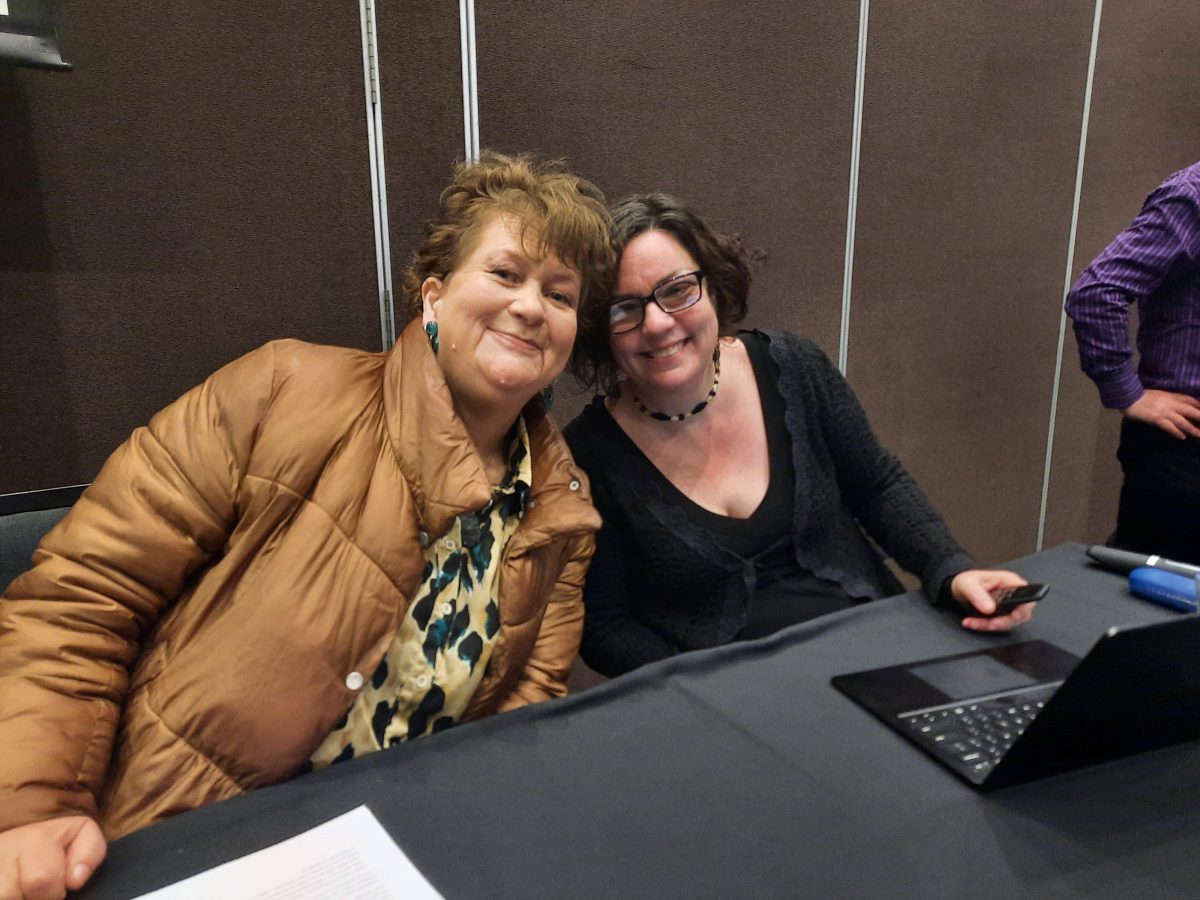Dorothy Armstrong and Emily Piggott present at the Reintegration Puzzle conference
Their presentation focussed on safe and ethical ways to incorporate the lived experience of people with cognitive disability and involvement in the criminal justice system.
Explaining the barriers that exist to engaging in lived experience work for this group of people Emily discussed the system harms and injustices that are often a feature of custodial environments, the trauma many people have experienced throughout their lives, and the lack of access to complaint-making, safeguarding and accessible information that makes people with disability feel too scared to do lived experience work. Dorothy stated that people with disability are often silenced by their experiences of custodial environments, and that the silencing and fear stays with people once they leave custody.
Dorothy talked about her own journey doing lived experience work for over 10 years with the Centre for Innovative Justice, and how her work has been healing and restorative for her and her children. Dorothy and Emily called for well resourced, independent, disability rights-based support for people with lived experience to do their work, with Dorothy saying that if she had known when she was in prison that lived experience work existed it would have made a difference to her experience of incarceration. Dorothy stated “in a life burnt to the ground, I would have held onto that idea like I was drowning. It’s a lifeline”.
Dorothy and Emily met many people with lived experience from around Australia at the conference who are doing incredible work in academia, advocacy, peer work, post-release support and social work practice. It was wonderful to see so many lived experience practitioners creating innovative, community-based ways of supporting people exiting custody. One of the many emotional moments of the conference was the keynote address delivered by Professor Ruth McCausland from the University of New South Wales on the social determinants of justice. This powerful, deeply sad, but justice driven address was followed by a panel of extraordinary lived experience experts and practitioners describing their own experiences of the criminal legal system, and how social factors had enabled them to be drawn into the system.
Dorothy was particularly impressed with the work Nina, Lyanne and Stacey are doing with FIGJAM with formerly incarcerated women in Victoria, and the work of Kane, Riley and Matt from The Power In You in Geelong who are supporting people exiting prison. She also connected with Alana Faust from Thriving Communities, Marie-Clare Couper from the Brain Injury Association of Tasmania, and Joseph Miliado from outCARE in the Northern Territory and is looking forward to strengthening the connections made at the conference.
